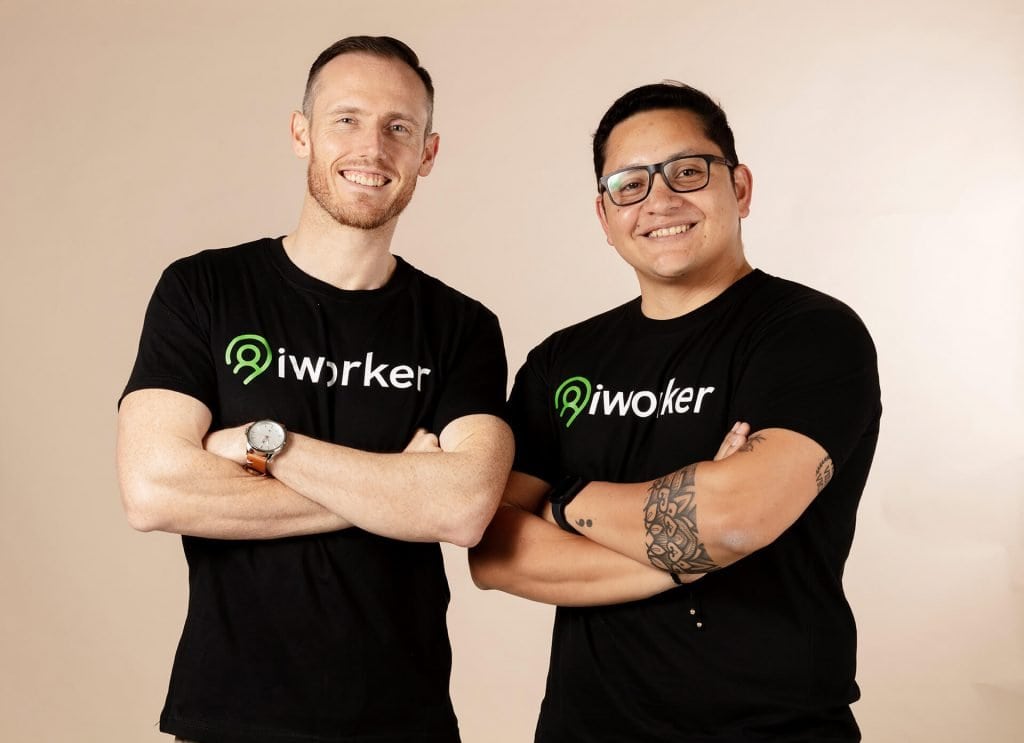“Inflation is affecting us every day,” laments Marcela Payares. “It’s affecting me right now.”
Around the world, the rising price of essential goods, from food to electronics to natural gas, is causing economic upheaval. But no nation in the world struggles with soaring costs like Payares’ home country of Venezuela. A four-year stretch of record-breaking hyperinflation rendered the country’s domestic currency barely worth the paper it was printed on. Yet Payares is grateful: Though she remains in Venezuela, she is now earning a reasonably comfortable living — in a more stable foreign currency — working as a multi-skilled virtual assistant through a platform called iWorker.
iWorker is a virtual assistant agency that connects bilingual professionals from economically troubled countries like Venezuela to business owners in the US, Europe and Canada. By directing good-paying jobs to these workers, the platform not only provides them an income, it ensures that income will be paid in a foreign currency more stable than their own, helping the recipients withstand surging rates of inflation.
“I’m better now. I live so much better and that’s a privilege,” Payares says. “That’s something that I believe not many people can say, but right now I’m in a good place thanks to my job.”
‘We cannot raise our daughter here’
The fiscal chaos that enveloped Venezuela is a story for the ages, packed with lessons about the economic promise and perils of living in a resource-rich country.
Following an oil boom in the 1920s, Venezuela grew rich as home to the world’s largest oil reserves. As recently as 2001, it was the wealthiest country in Latin America. But with an economy overly reliant on fossil fuel production, Venezuela fell victim to forces that have humbled many a petrostate before it. Over the last two decades, volatile oil prices and a corrupt minority elite led to double-digit inflation rates, which spiked even higher under the autocratic reign of President Nicolas Maduro. Hyperinflation took hold in 2016, hitting a staggering 800 percent. Two years later, the wheels came off as inflation exceeded one million percent.
Though inflation has moderated since then, its ravages are still felt throughout the country. Today, basic items such as food, water and medical supplies are often scarce, and Venezuela has the highest rate of extreme poverty — 77 percent — in Latin America. Even many professionals have trouble making a living wage. Before she found iWorker, this included Payares, who worked as a secretary in public administration where her monthly earnings, when converted to US dollars, came to less than $10.
The economic calamity triggered a mass exodus. Since 2014, up to seven million Venezuelans have fled to other countries. Enrique Yervez, the co-founder of iWorker, is one of them.

In November 2017, Yervez quit his barely sustainable job as a manager for a big hotel on the Venezuelan island of Margarita — where he was earning a paltry $30 a month — to focus solely on virtual assistant gigs, which he had been doing part-time to supplement his income.
He learned new digital skills, narrowed his focus to e-commerce and cultivated a diversified American client base ranging from handyman companies to insurance firms. Making $200 to $300 in US dollars each month assuaged the effects of hyperinflation, but it couldn’t shield him from the scarcity of basic amenities and the surge in crime. “The environment was toxic,” he recalls.
Yervez’s moment of reckoning arrived in 2018. He had just gotten married, and he and his wife were expecting a baby girl. But the first three months of the pregnancy were intense. His wife was on bed rest with health issues, and “there was a really aggressive lack of medicine in Venezuela,” he says. When they finally found the medication she needed — on the black market, at four times the cost — it turned out to be fake.
“I said to myself, this is it for us. We cannot raise our daughter here,” he says. “My daughter cannot be born here in this situation. 2017 and 2018 were definitely the worst years of the crisis.”
After they fled to Bueno Aires, Yervez was concerned about the people he left behind, and wondered how he could help “find more work for my friends and family” back in Venezuela. Whenever he could, he would introduce them to remote jobs on gig platforms, where they could leverage their digital skills and English language proficiency.
With the help of his American partner, Jeb Koogler, the concept for iWorker took shape.
“When I was in Venezuela (and) I was working remotely, he was my client. When I moved to Argentina, it was a puzzle. We put the little pieces together and we started thinking about how to find more work for my friends and family.”
A selective social enterprise
“There will always be work for me,” Marcy Zamora says. In 2020, the accountant, who has 15 years of experience, left Venezuela to settle in Castanhal, a city in the northern Brazilian state of Pará, due to the crisis back home. She found work through other gig platforms, but “here in iWorker, I have more possibilities because I have several clients,” she says.
Zamora currently has three clients that she does a variety of accounting tasks for and receives as much as $10 per hour, with a guaranteed 40 hours per week.
These tasks are typical for iWorker, whose clients’ needs include social media management, digital marketing, graphic design, video editing, accounting and “just about anything else that can be done on a computer,” according to the company’s website.
Crushed by negative news?
Sign up for the Reasons to be Cheerful newsletter.Fees for iWorker services start at $5.95 and go up to $29.99, depending on the required skill set for the job. Back in Venezuela, Payares now earns $800 monthly, a significant increase from the irregular wages she earned on other gig platforms and the paltry monthly sum she received for her secretarial work. With iWorker, “I will always have a job,” she says.
iWorker says it has provided work to over 4,500 Venezuelans inside and outside of the country since 2018. Some 65 percent of its workforce is women, in part because of the low barrier to entry afforded to women by gig platforms, especially in a conservative nation like Venezuela.
Though it frames itself as a social enterprise, iWorker is selective about who it hires. Prospective workers must provide details about their professional background and demonstrate their English language proficiency. “If what we see in that initial form looks great, then we have the worker go through a virtual interview where they’re asked some vital questions,” Yervez says. After iWorker validates their stated skills, the last step is “an interview with our recruiter.”
Successful applicants are onboarded to the worker pool, where they are listed to prospective clients. “If a potential client comes and says to us, ‘Hey, I’m thinking about hiring two people: one for responding to emails and customer service, and someone who can help with graphics, social media posts, and so on,’ what we do is, we send the client two prospects for each skill (and) each task they need help with,” Yervez says. Clients then schedule calls with workers that suit them before making a decision.
This rigorous vetting process means that iWorker accepts a mere 3.47 percent of its applicants, a somewhat awkwardly high rejection rate, given that their main goal is to help people who are in economically stressful situations. Yervez insists, however, that this selectivity is crucial to keeping foreign clients hiring people through iWorker.
“The reason why we’re very selective is that we need to make sure that the workers succeed (while) working remotely,” he says. “That might not sound very appealing, but, in the beginning, we were just accepting more people with no digital skills or people with language barriers.” He notes that iWorker’s recent expansion to African countries where English is the official language has led to a slightly higher applicant acceptance rate.
For business owners, virtual workers are a crucial time-saver. This is the case for Michael Fritzius, a US-based entrepreneur in the state of Missouri. Having passed on several approaches from other virtual assistant companies, Fritzius was initially swayed by iWorker’s social goal, and since then, has been impressed by the effect it has had on his business. He first hired a virtual assistant who edited video episodes for his podcast agency. He has since gotten a graphic designer, a personal assistant and even a researcher for a clean-living business he co-runs with his wife. He now has five virtual assistants from the social enterprise working from Venezuela, Kenya, St. Vincent and the Grenadines, and Uganda.
“I’m always looking for things to hand off to people now,” he says. “It’s like, ‘Wow, I really want to spend all my time on the business.’”
Resilience personified
Infrastructure deficiencies and government attempts to control information have left Venezuela with some of the slowest internet speeds in the world. Sheer resilience is how Payares powers through. With unstable internet reception affecting our Zoom interview, she leaves her apartment, drives down the street and parks strategically in an area where internet connectivity is stronger.
To squeeze extra juice from the signal, we disable our video. Payares’ voice, however, is enough to convey the enthusiasm and reassurance that would calm a client in urgent need of deliverables.
“I always do whatever I can. I go to the street, I go to a hotel, I just do whatever I have to do,” she says of her ambition to meet clients’ expectations.
“The limitation, I think, is internet access,” Yervez admits, “but we try to set those expectations from the beginning with the client. So the clients know that there will be internet issues from time to time.” In cases where a job requires a more reliable internet connection, tasks are shifted to workers who are better placed. Generally, workers’ internet speed is assessed during the recruitment process.
While resilience is enough to get Payares through, internet issues were a factor in Zamora’s decision to move abroad. She had started to work as a virtual assistant on other gig platforms before joining iWorker in Castanhal. In the end, both parties are excited about the life iWorker affords them, which fits with Yervez’s plan for iWorker to provide Venezuelans with autonomy and choice. His goal? To get iWorker to a place where it can “hire as many workers as we can pay for work.”









